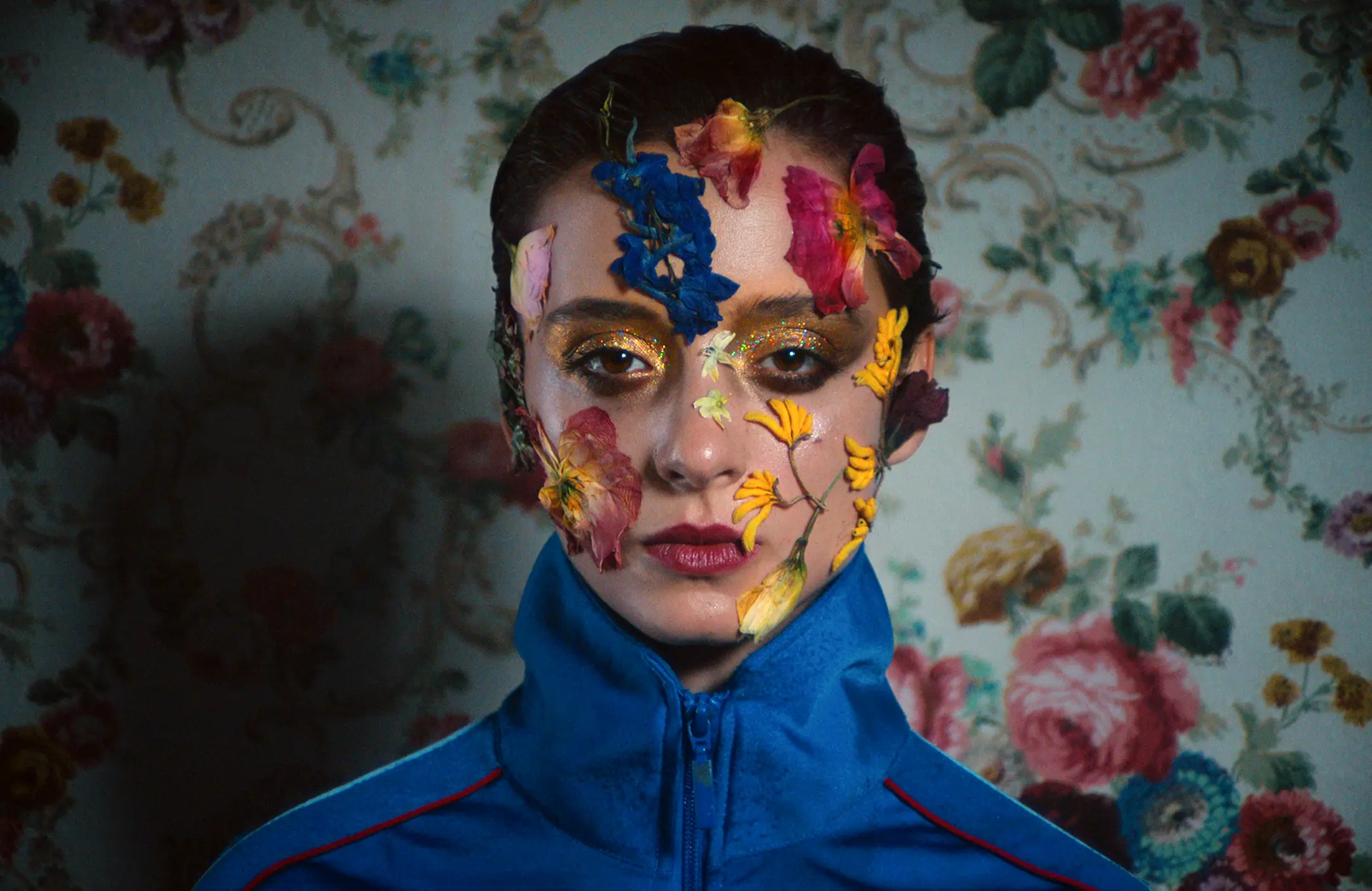Copenhagen Cowboy Shows the Worst of Nicolas Winding Refn
-
 Angela Bundalovic in Copenhagen Cowboy (Photo: Magnus Jønk Nordenhof/Netflix)
Angela Bundalovic in Copenhagen Cowboy (Photo: Magnus Jønk Nordenhof/Netflix)Time and again, filmmaker Nicolas Winding Refn has been accused of preferring style over substance. His recent films —Drive, Only God Forgives, and The Neon Demon — do indeed have a strong aesthetic sensibility, and their languid pacing and bouts of intentionally disconcerting silence can be understandably frustrating to viewers who want more than occasional moments of action. However, these projects, as well as Too Old to Die Young, Refn’s marvelous Prime Video limited series, also have a certain beauty that can be quite rewarding. By contrast, Copenhagen Cowboy, his new series premiering January 6 on Netflix, is arguably his first project that really is nothing but flash.
Even trying to describe the show’s plot is a losing game. There are so many narrative threads and hazily defined characters that keeping track becomes exhausting. Suffice to say that the show revolves around an enigmatic young woman named Miu (Angela Bundalovic) who finds herself stepping into a number of dangerous situations in her journey toward a vague, incomprehensible goal.
The series thrusts Miu into a number of overlapping arcs, each one diving into a different type of criminal underworld. She helps a woman who has been sex trafficked escape from the empire that now presumes to own her. She helps a mother reunite with a child that was taken from her as punishment. And in the most outlandish story, she finds herself at odds with a cannibalistic, potentially vampiric, man whose family is obsessed with his penis.
If it sounds ridiculous, it absolutely is. There are even a few instances where the jokes actually land, like a one-off scene where the deadpan Miu engages in a drug deal with clownish businessmen. However, the show is not intentionally camp like Too Old to Die Young, which has cops cheering for fascism. Instead, it often mistakes embarrassingly blunt metaphors for comedy, like when a character squeals like a pig while getting beaten. Otherwise, everything is played with dour seriousness.
Still, the occasional jokes are a relief, and so are the few flashes of action. Two standout moments come in the back half of the series — a short chase scene and a climactic moment that’s essentially a slowed-down fighting game on an ethereal plane, with each punch and kick punctuated by an unearthly sound effect. Both sequences provide some blessed momentum, but elsewhere Refn is unable to fill out the running time with anything substantial. The scenes become a slow, torturous slog.
Visually, things are just as tedious. The emptiness is epitomized by the constant use of a camera that rotates 360 degrees but never teaches the viewer anything new about a scene. This pales in comparison to how M. Night Shyamalan and cinematographer Mike Gioulakis use the technique, particularly in a show like Servant, where the rotating lens surprises the viewer with carefully placed revelations.
Thrust into this charmless world, Bundalovic has a thankless job as Miu, never altering her deadpan expression. Refn’s past protagonists have a certain level of internal conflict that can be seen in even the blankest of gazes, and the director has coaxed introspective, minimalist performances from the actors who portray them. Miu, by contrast, is a cardboard cutout. She’s not only skilled at everything she does, but also a ceaseless force of good in a morally corrupt world, which makes her, frankly, boring to watch. She never grows or changes, and neither does Bundalovic.
The series itself doesn’t change much either. It moves the viewer through various warehouses and back rooms that look exactly alike, with each locale swapping out one culture for another. As it visits a Serbian-run brothel, Danish law offices, a Chinese pig farm, and a Thai fighting ring, it flattens everything into shallow multiculturalism. This is particularly disappointing when compared to Refn’s film Only God Forgives, which explicitly explores its white protagonist’s otherness in an Asian world. By contrast, Copenhagen Cowboy represents world-building at its worst, with no clear interest in making a single character’s arc memorable and wasting a capable ensemble. Actors like Li Li Zhang, Valentina Dejanovic, and Zlatko Burić, a staple of Refn’s from the Pusher trilogy and Bleeder, almost reach something worth watching in their respective performances, each delivering a beautiful fragility in their portraits of flawed humans. Ultimately, though, they just emphasize that Miu is a cypher.
Thanks to this artless construction, Copenhagen Cowboy quickly grates. It’s telling that Refn’s last longform project, Too Old to Die Young, was similarly stylized but much more engrossing, and it suggests Ed Brubaker, who wrote the series, is a better collaborator for Refn than his co-writers here: Sara Isabella Jönsson, Johanne Algren, and Mona Masri. Without a creative team to rein in his indulgences, Refn may very well have hit the limit of his abilities. Though the show ends with the promise of a second season, he’d be better off starting fresh and leaving this disaster behind.
Copenhagen Cowboy premieres January 5 on Netflix. Join the discussion about the show in our forums.
Juan Barquin is a Miami-based writer, programmer, filmmaker, and co-creator of the queer film series Flaming Classics. They aspire to be Bridget Jones.
TOPICS: Copenhagen Cowboy, Netflix, Angela Bundalovic, Ed Brubaker, Nicolas Winding Refn